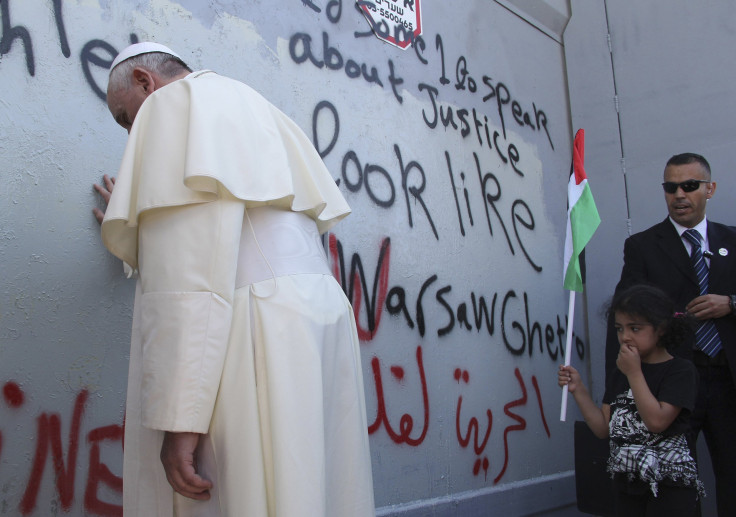
The Vatican confirmed on Wednesday a treaty with Palestinian Authority officials that recognizes Palestine as a state. It’s the first official treaty stating the position of the Holy See, which has warmed to Palestinian officials in recent years. While the details of the treaty mainly focus on logistical matters concerning the operation of the Catholic Church, the announcement is part of a larger conversation on Palestine. As part of it’s bid to win independence from Israeli occupation, Palestinian officials have for years championed a campaign for international recognition. It’s one of the country’s more successful diplomatic moves, winning the endorsement of over 80 governments.
Look at a map marking those 80 countries Palestine and you’ll see some notable patches: Western Europe and the U.S., as well as major American allies like Australia, Canada, Japan, Mexico, Colombia and of course, Israel. Some of those holdouts are closer to recognizing Israel than others. Activists and politicians in the United Kingdom for example, supported many of Palestine’s other campaigns, including economic and intellectual boycotts of Israeli as well as symbolic attempts to break that country’s economic blockade of the Gaza Strip. With the Pope on board, Palestine now has the endorsement of the most visible representative of the the West’s most practiced religion on their side. That could make a big difference in Palestine’s attempts to court countries like Italy, France, and Spain to supporting their cause.
“The Vatican is the spiritual capital of the Catholics, and they are recognizing Palestine, that’s the chief importance,” Hanna Amireh, a member of the Palestine Liberation Organization’s executive committee, told the New York Times.
Recognition won’t translate directly into rights, but Palestinians believe that a near consensus of world leaders may pressure Israel and the U.S. to accept independence. While the Israel/Palestine conflict is immensely complex, suffice it to say that Palestine’s recognition increases its bargaining power and further alienates Israel’s foreign policy. In fact, Israeli always takes notice when Palestine scores diplomatic points through recognition. A senior Israeli Foreign Ministry official told Haaretz on Wednesday that his office believes that recognition of Palestine does not help the peace process.
"Israel was disappointed to hear about the Holy See's decision to agree on a final text of an agreement… with the Palestinians, that includes the term 'the state of Palestine,'" the official said. "Israel will examine the agreement and weigh its actions accordingly."
While the White House has not yet released a statement, it’s consistently supported Israel’s position that recognition of Palestine does not advance peace.
“United States has continued to take a variety of steps even in a range of multilateral fora to stand up diplomatically for Israel even in situations that left the United States feeling a little isolated,” White House Press Secretary Josh Ernest told reporters in a briefing on Tuesday, before the Vatican story broke.
In 2012, 139 countries voted to elevate Palestine to “observer status,” equal to that of the Vatican, but a step short of being a state. The U.S. vetoed the move at the U.N. Security Council . In 2014, the European Parliament voted overwhelmingly to recognize Palestinian statehood “on principle.” If the trend continues and Palestine wins formal recognition from more Western countries -- or the entire E.U. block, the U.S. might be left standing up for Israel alone.
© 2025 Latin Times. All rights reserved. Do not reproduce without permission.



